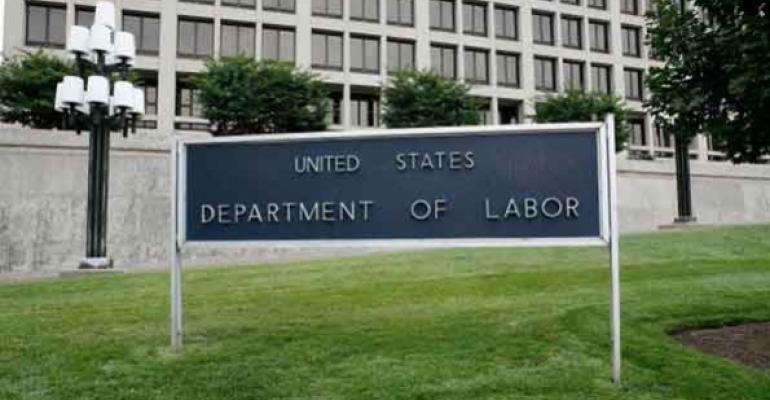As the Department of Labor said Friday that the fiduciary exemption finalized in the waning weeks of the Trump administration would go into effect Tuesday, Feb. 16, as scheduled, it also indicated that the department would release “related guidance” in the days ahead for investors, plans and providers alike. This has left industry participants and experts looking ahead to what form this guidance may take.
But while many hoped and expected that the Biden administration might place an additional stay on the rule's effective date, the administration's decision to let the rule move forward could be an indication that the rule has some teeth to it and will sizably impact relationships between consumers and brokers. Max Schatzow, an attorney with Stark & Stark’s Investment Management and Securities Group and the author of the investment advisor blog AdviserCounsel, speculated that the administration may view this rule as a “temporary band aid” while they determine what further changes were needed, and consumer protection advocates should be optimistic about the requirement for written disclosures of many rollover recommendations. (This provision of the rule had been a surprise to many.)
“I think they believe that will do the trick in preventing advisors and brokers from taking advantage of investors,” he said. “I think that has some serious teeth to it and will have some serious effects.”
The new rule, “Improving Investment Advice for Workers and Retirees,” creates an exemption allowing fiduciaries to receive compensation from certain third parties when making recommendations provided they adhered to certain “impartial conduct standards.” The rule also claimed the 1975 “five-part” test for discerning whether a recommendation fell under ERISA fiduciary regulation was automatically reinstated when a federal appeals court struck down the Obama administration’s own rule for fiduciaries in 2018.
During a webinar hosted by the law firm Faegre Drinker on DOL and SEC regulations in the coming Biden era, Fred Reish, a partner with the firm, acknowledged that the “conventional wisdom” had been that the department would place an additional stay on the rule, and partner Bradford Campbell said the “different moving pieces” surrounding the potential regulation (or lack thereof) confused many.
“Frankly, no one expected the Trump administration to take the position it took, and then no one expected the Biden administration to let the Trump position stand, at least for now,” he said.
Campbell said the new rule rescinded guidance from the George W. Bush administration that most rollover recommendations were not considered fiduciary advice. The five-part test determining fiduciary status includes whether a recommendation is part of an ongoing relationship, but the new rule’s guidance clarified that even a first-time recommendation could be part of an ongoing relationship if the advisor and client intend to meet again. The rule also made additional demands on professionals and their respective financial institutions, including that they both agree to be a fiduciary in writing and complete a series of disclosures on fees and conflicts akin to what’s demanded by Reg BI. Those financial institutions also need to have policies in place to ensure these requirements are met, according to Campbell.
“There are things to be put into place that in all likelihood have not been put into place by your RIA or your broker/dealer because no one actually thought this exemption was going to go into effect today,” he said. “The anticipation was the Biden administration would delay it by an additional 60 days and review it.”
Schatzow predicted the new administration might revisit the five-part test to make recommendations subject to that status. The 2018 court decision against the Obama administration’s rule could actually benefit Biden’s team by showing them the ways to avoid judicial pitfalls, he believed.
“The court usually gives you a roadmap that will make it more difficult for the court in striking down future legislation,” he said. “You’ll craft your new law around what the judges said was problematic.”
The final rule went into effect Tuesday, though the DOL stressed that professionals could continue to operate under already-issued temporary guidance through the end of December 2021, and the department also made clear that “related guidance” pertaining to the rule was imminent. A. Valerie Mirko, a partner with law firm Baker McKenzie, said this guidance would be particularly impactful on how the rule would eventually affect the industry, and expected it to focus on conflicts (with a particular focus on elimination as much as was possible under the rule’s framework), documentation and an emphasis on products like variable annuities.
“This is really one of those areas where it’ll be such a balance between the prohibited transaction exemption, and the guidance that comes out of the DOL this week,” she said. “And the interplay between the two is really how that prohibited transaction exemption is applied.”
Mirko also speculated that the rule’s survival suggests that the SEC’s Regulation Best Interest is likely to remain in place, as well. (The DOL rule was designed to align with the SEC’s.)
“I think the fact that the DOL rule is staying in place is just yet another indication of how hardwired Reg BI is,” she said.





